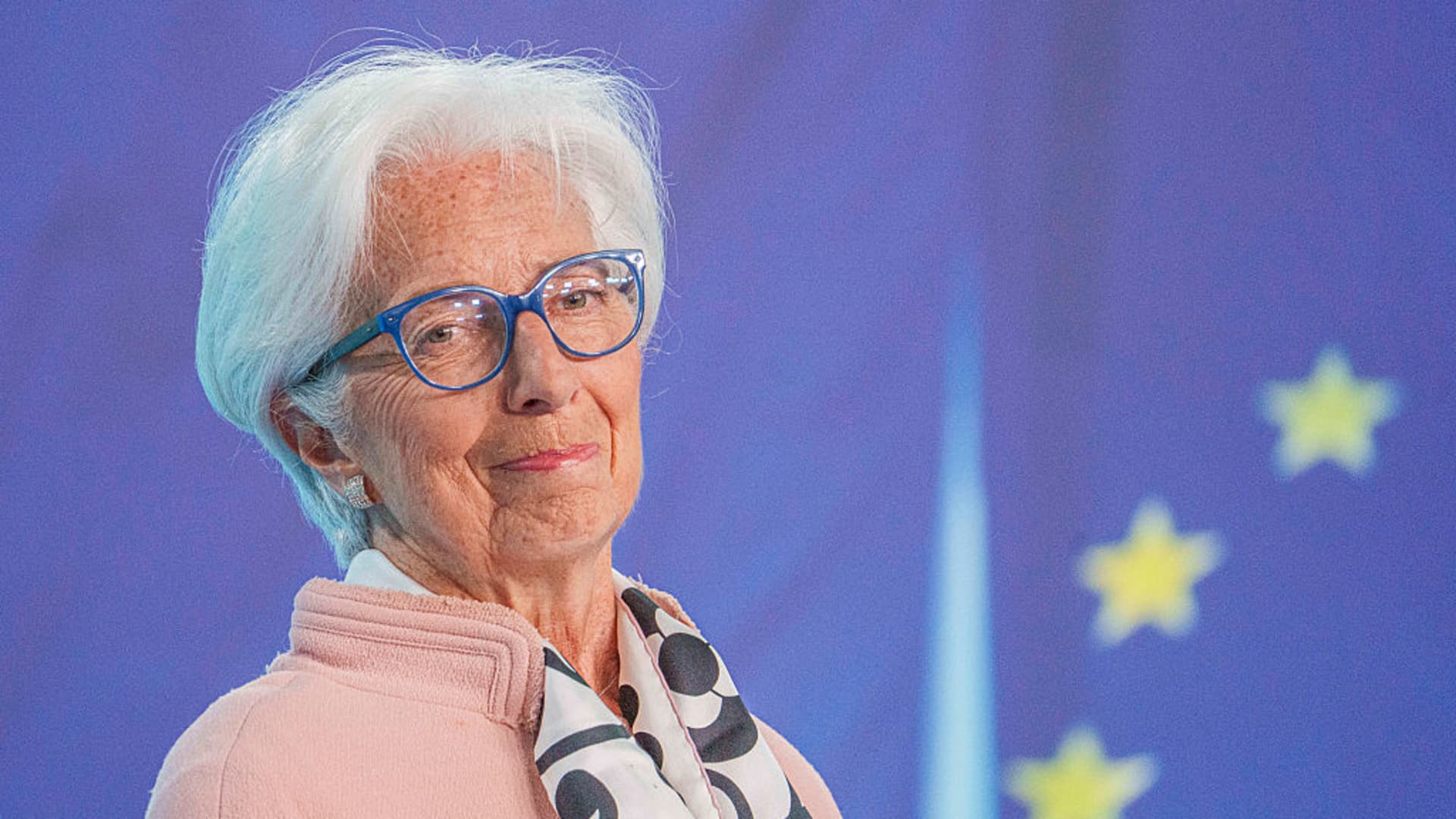European Central Bank President Christine Lagarde expressed concern over the possibility of U.S. President Trump removing Federal Reserve Chair Jerome Powell, calling it a scenario she hopes is not a risk. Lagarde praised Powell’s dedication to his mandate amidst political pressure regarding interest rates. With the ECB cutting rates to combat low growth, Lagarde noted the Fed has maintained steady rates. She discussed the impact of Trump’s tariffs on the EU and advocated for negotiations, emphasizing mutual interests between the U.S. and Europe in trade relations, despite differing views on unfair treatment.
On Tuesday, Christine Lagarde, President of the European Central Bank, expressed her hope that U.S. President Donald Trump firing Federal Reserve Chair Jerome Powell was not a possibility.
When asked by CNBC’s Sara Eisen if Trump’s removal of the Fed chair posed a significant threat to the markets, Lagarde replied, “I certainly hope not … I hope that it is not a risk.”
Trump initially appointed Powell during his first term but is currently exploring the legality of dismissing him before his term concludes.
Lagarde, speaking on the sidelines of the IMF World Bank Spring Meetings, told CNBC she would refrain from commenting on the market consequences of an event she hoped was “not on the table.”
Trump has been intensifying his pressure on Powell to lower interest rates, cautioning that the U.S. economy could decelerate if this does not happen.
Powel suggested last week that Trump’s trade conflict could negatively impact growth and increase inflation. He did not specify his outlook for future interest rates, but mentioned, “for the time being, we are well positioned to wait for greater clarity before considering any adjustments to our policy stance.”
Lagarde remarked to CNBC on Tuesday, “We’re both used to political pressure in various forms.”
“I have immense respect for the work that he does, and for his loyalty to his role, striving to be as diligent and disciplined as possible to fulfill his mandate. For him, as for me, the mandate serves as our guiding principle. We must deliver on it.”

The monetary policies of the ECB and the Fed have been moving in different directions.
The ECB has persistently lowered rates as inflation approaches its 2% target, while economic growth in the euro area appears weak. Meanwhile, the Fed has maintained stable interest rates this year after three successive cuts from September to December of the previous year.
Last week, the ECB reduced interest rates by an additional 25 basis points, marking its third cut of 2025 and the seventh since easing monetary policy began last summer. In its statement, the central bank cautioned about diminished growth prospects linked to the global trade uncertainties exacerbated by Trump’s tariff policy.
Trump has referenced ECB rate cuts during his recent criticisms of Powell. On Monday, he stated on his Truth Social platform that the central bank had already reduced rates seven times and reiterated his label for Powell as “Mr. Too Late.”
Possibility for EU-U.S. trade negotiation
Lagarde also addressed the repercussions of Trump’s market-volatile tariff policy, noting that the tariff rate faced by the euro zone was currently higher than the general 10% imposed on U.S. trading partners, due to the inclusion of 25% duties on steel, aluminum, and automobiles. The European Union could face universal 25% tariffs if a deal is not reached.
“I am confident that there is room for negotiations. It is inherent for policymakers to engage and present their cases, negotiate their priorities, their limits, their vulnerabilities, and I believe that a dialogue is possible,” Lagarde commented.
“I would be surprised if such discussions weren’t taking place,” she added.
The EU has currently suspended its initial tranche of counter-tariffs as a response to the metal tariffs while discussions are ongoing.
Lagarde expressed her disagreement with Trump’s assertion that the EU treats the U.S. unfairly in trade due to its surplus in goods, highlighting that the relationship also encompasses services and foreign direct investment.
“There is a significant joint interest” between the U.S. and Europe, she noted. “While some sectors require serious negotiations, it’s crucial to recognize that trade matters are not one-sided; they involve both parties.”
